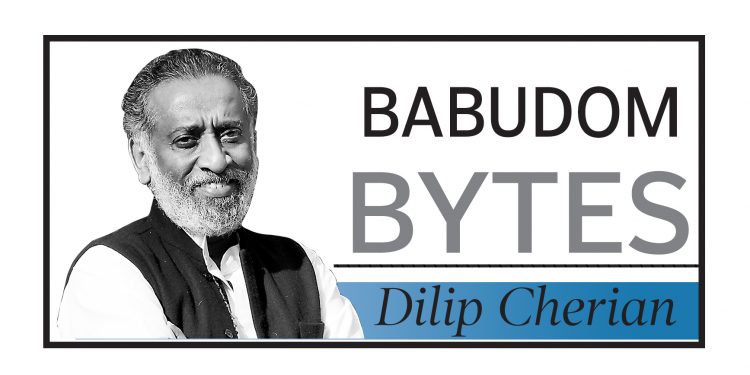In a kind of action replay reminiscent of a similar instance in 2010 and also during Modi’s first tenure as PM, the appointment of Sanjay Kothari as the new Central Vigilance Commissioner and Bimal Julka as the new Central Information Commissioner have run into controversy. Adhir Ranjan Chowdhury, the Congress member of the high-powered selection panel, which is headed by the Prime Minister, strongly objected to their appointments.
Kothari is secretary to the President of India, while Julka is former information and broadcasting secretary and is currently information commissioner.
Chowdhury objected to “glaring infirmities” within the search committee itself. His primary objection was to the presence of Finance Secretary Rajiv Kumar in the selection panel when he also was an applicant to the post of CVC. Besides Kumar, the other members of the panel were Cabinet Secretary Rajeev Gauba and DoPT Secretary C Chandramouli.
Chowdury’s objections were overruled by a majority decision, but he managed to voice the view that the committee was merely formalising a decision that had already been taken by Prime Minister Modi.
Future stalled, feel UP babus
The Uttar Pradesh government’s seeming reluctance to allow its senior babus for Central deputation has not gone down well with the babus, particularly those from the 1988 and 1989 batches. Also, while the 1986 and 1987 batches of IAS officers were promoted from the rank of principal secretary to additional chief secretary, the subsequent batches are due for promotion, but the Yogi government has shown no inclination to do so.
The babus are even more restive, sources say, ever since the Gujarat government cleared the decks for 1989 batch IAS officers to be promoted as additional chief secretaries.
The UP babus feel that they are being deprived of their dues, not only in terms of promotion within their parent cadre but also the opportunity to work at the Centre on deputation, which is considered crucial for career advancement.
It is being said that the Yogi government is constrained by the prescribed limit on ACS-rank posts in the state. But it is still not clear why the UP chief minister is reluctant to allow his babus for Central deputation.
Separate cadre sought
Arunachal Pradesh Chief Minister Pema Khandu has reiterated the demand for a separate IAS cadre for the state. Recently, on the occasion of Statehood Day in Arunachal, Khandu urged Union Home Minister Amit Shah to work out modalities for creation of separate cadre for the state to ensure its speedy development.
Despite 33 years of statehood, Arunachal Pradesh still does not have its own cadre of civil service officers. Currently, civil service officers working in the state are from the AGMUT cadre – a common cadre for Arunachal Pradesh, Goa, Mizoram and Union Territories. Khandu reportedly told Shah that the state required a dedicated team of administrative officers, who would help the state “realise Prime Minister Narendra Modi’s dream of a New India”.
The Chief Minister said posting of non-permanent IAS and IPS officers at higher bureaucracy in the state causes institutional memory loss, which slows down the pace of development. Institutional memory is the collective knowledge and experience of a group. This demand has also been raised by Arunachal Pradesh Governor BD Mishra. The state Assembly, too, has passed a resolution for a separate IAS, IPS and IFS cadre for the state.
Share a babu experience. Follow dilipthecherian@twitter.com. Let us multiply the effect.







































